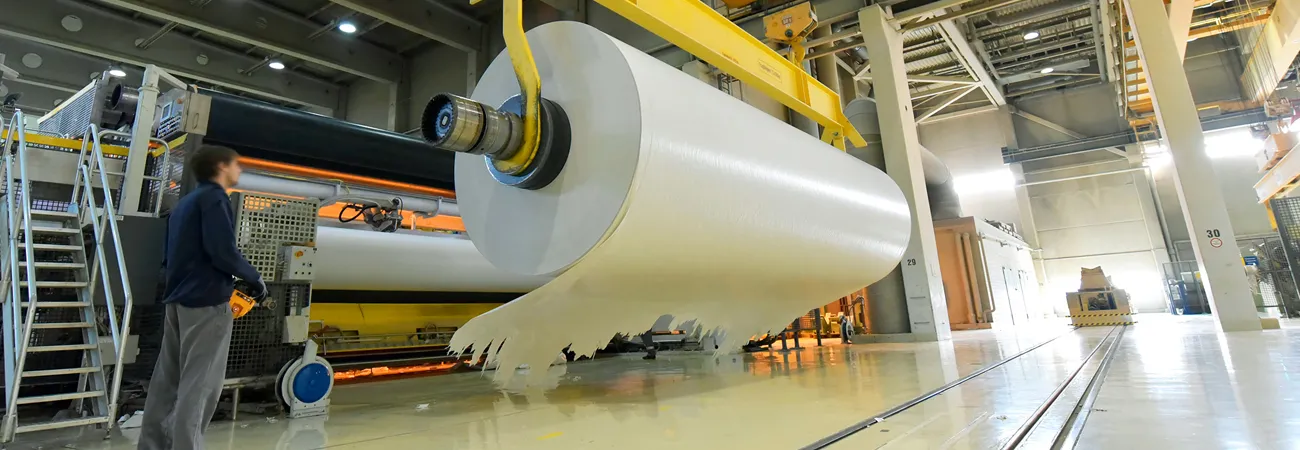i ECONOMY
Century Paper and Board Mills Limited (CEPB) witnessed an increase of 19.3% and 85.7% in before and after-tax profit, respectively, in the first half of the ongoing fiscal year (1HFY24), as compared to 1HFY23, WealthPK reports. As per the half-yearly report, the company posted a profit-before-tax (PBT) of Rs580.7 million and a profit-after-tax of Rs354.2 million in 1HFY24. Moreover, the significant rise in other income has led to a 37.7% increase in profit from operations during the period under review. The paper & board company posted a gross profit of Rs2,056 million, representing a 19.3% increase from the previous year. This growth can be attributed to a managed product mix and reduced energy costs during the period under review.
In addition, the company produced 94,297 metric tons during 1HFY24 as compared to 117,836 metric tons in 1HFY23. The reduced capacity utilization during the period was a consequence of the sluggish demand, increased competition for cheaper imported goods, and outsourcing of certain raw materials for corrugated boxes. The sales volume for the period under consideration (July-December 2023) stood at 94,384 metric tons against 117,034 metric tons in the same period last year. In terms of value, the net sales were recorded at Rs22,079 million in 1HFY24 as compared to Rs24,925 million in the corresponding period of last fiscal year
Historical Performance (2018-23)
The CEPB’s topline has been posting a steady growth in all the years under consideration; however, its bottom line slid thrice- in 2019, 2022, and 2023. In 2019, CEPB's topline grew by 17% on the back of improved prices, a better sales mix coupled with an increase in sales volume. The cost of sales grew by 19% year-on-year (YoY) in 2019 due to rupee depreciation and fuel price hikes. Moreover, the gross profit ticked up by 6% YoY in 2019. Higher debt coupled with monetary tightening culminated in a higher financial cost for the year and pushed down the bottom line by 11% YoY to clock in at Rs884 million in 2019. During 2020, the company witnessed a marginal 9% YoY growth in the top line. Owing to an improved sales mix and better prices, the gross profit posted an encouraging growth of 48% YoY.
The bottom line grew by 72% YoY in 2020 to clock in at Rs1,522 million. The EPS also grew to Rs10.35 in the year. In 2021, the company’s net sales magnified by 18% YoY on the back of an 8% YoY rise in sales volume. Consumers started focusing on packaged products and online shopping after COVID-19, which increased the demand for packaged products in 2021. The gross profit grew by 45% YoY in 2021 due to operational efficiency, optimal sourcing of raw materials, and low fuel cost. Finance costs shrank by 59% YoY in 2021 on the back of a low discount rate. The bottom line posted a stunning 94% YoY growth to clock in at Rs2,960 million. The year 2022 brought 36% YoY growth in CEPB's topline due to impressive growth posted by LSM, which created demand for paper and paperboard products.
However, high commodity prices due to commodity super cycle, Pak Rupee depreciation, and indigenous inflation jacked the cost of sales up by 48% YoY. This trimmed down the gross profit by 13% YoY in 2022. Furthermore, the net profit dropped by 25% in the year to clock in at Rs2,212 million. During 2023, the CEPB's topline posted a 22% YoY growth. Elevated material and fuel costs led to a 27% rise in the cost of sales compared to the previous year. The company witnessed an 11% and 59% decline in gross and net profit, respectively.
Company profile and future outlook
The company uses the symbol of CEPB on the Pakistan Stock Exchange and is listed in the paper and board sector. With a market capitalization of Rs11.8 billion, CEPB is the second largest firm in the sector. It was incorporated as a public limited company in 1984 and is primarily engaged in the manufacture and sale of paper. The prevailing local and global economic conditions have dented the demand and supply of paper and paperboard products. However, the company is engaged in attracting its customers through cost rationalization and operational efficiency.
Credit: Independent News Pakistan (INP)









